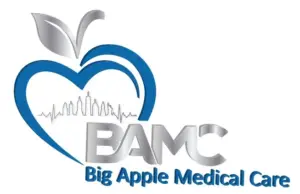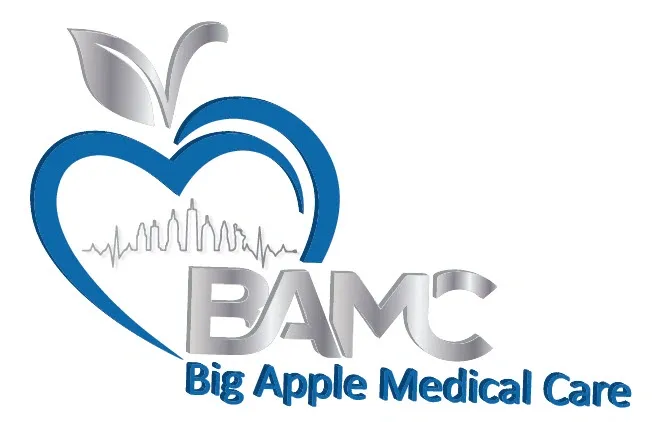What Are the Signs of Kidney Disease in 2025?

Kidney disease remains a significant health concern in 2025. Recognizing the early signs can lead to prompt treatment and better outcomes. Common symptoms include fatigue, changes in urination patterns, and swelling in the extremities.
Many individuals may overlook these subtle indicators, attributing them to other factors like stress or aging. It’s crucial to be aware of potential kidney issues, especially for those with risk factors such as diabetes or hypertension.
Regular check-ups and blood tests at reputable healthcare providers like Big Apple Medical Care can help detect kidney problems early. These medical professionals offer comprehensive screenings and personalized care plans to monitor and maintain optimal kidney function.
Understanding Kidney Health and Disease
Kidney health is crucial for overall wellbeing. These vital organs perform several key functions that keep the body in balance.
Kidney Structure and Function
The kidneys are bean-shaped organs located in the lower back. They filter blood, removing waste and excess fluids. This process produces urine to excrete toxins from the body.
Kidneys also help regulate blood pressure, produce hormones, and maintain electrolyte balance. Each kidney contains about a million tiny filtering units called nephrons.
At Big Apple Medical Care, nephrologists use advanced imaging to examine kidney structure and assess function in detail.
What Is Kidney Disease?
Kidney disease occurs when these organs become damaged and cannot filter blood effectively. This leads to waste buildup in the body.
Common types include chronic kidney disease, glomerulonephritis, and polycystic kidney disease. Diabetes and high blood pressure are major risk factors.
Early kidney disease often has no symptoms. Big Apple Medical Care offers comprehensive screenings to detect issues before they progress.
The Spectrum from Kidney Damage to Failure
Kidney damage exists on a spectrum. Mild damage may not cause noticeable symptoms. As it worsens, patients may experience fatigue, swelling, and changes in urination.
Severe damage can lead to kidney failure, where the organs stop working. This requires dialysis or transplantation to sustain life.
Big Apple Medical Care provides care across this spectrum. Their team develops personalized treatment plans to slow disease progression and manage symptoms.
Risk Factors and Causes of Kidney Disease
Several factors can increase the likelihood of developing kidney disease. These include certain medical conditions and lifestyle choices that affect kidney function over time.
Understanding the Risk Factors
Diabetes stands out as a primary risk factor for kidney disease. When blood sugar levels remain consistently high, it can damage the kidneys’ filtering units. Regular monitoring and management of blood sugar are crucial for kidney health.
High blood pressure, or hypertension, also poses a significant threat. It can damage blood vessels in the kidneys, impairing their ability to filter waste effectively. Maintaining optimal blood pressure through medication and lifestyle changes is essential.
Obesity contributes to kidney disease risk by straining the organs and often accompanying other health issues. Achieving and maintaining a healthy weight can help protect kidney function.
The Impact of Diabetes and High Blood Pressure
Diabetes and hypertension often go hand in hand, compounding kidney disease risk. These conditions can cause gradual damage to kidney tissues and blood vessels.
Uncontrolled diabetes leads to high blood sugar, which can harm the kidneys’ delicate filtering structures. This damage occurs slowly over years, often without noticeable symptoms.
High blood pressure forces the heart to work harder, putting stress on blood vessels throughout the body, including those in the kidneys. This increased pressure can lead to kidney damage over time.
Other Contributing Conditions
Heart disease is closely linked to kidney health. The cardiovascular system and kidneys are interconnected, and problems in one area can affect the other.
Certain medications, when used long-term, may impact kidney function. It’s important to discuss potential side effects with a healthcare provider.
Family history plays a role in kidney disease risk. Individuals with relatives who have kidney problems may be more susceptible to developing similar issues.
Age is another factor, as kidney function naturally declines over time. Regular check-ups become increasingly important as people grow older to monitor kidney health.
Identifying the Signs and Symptoms
Recognizing kidney disease symptoms early is crucial for effective treatment. Subtle changes in the body can indicate developing kidney issues, while more severe symptoms may signal advanced stages of the condition.
Early Indicators of Kidney Issues
Fatigue and decreased energy levels are common early signs of kidney problems. Individuals may experience unexplained tiredness, even after adequate rest. Changes in urination patterns can also occur, such as increased frequency or foamy urine.
Loss of appetite and nausea may develop as the kidneys struggle to filter waste. Some people report a metallic taste in their mouth or food aversion. Swelling in the feet, ankles, or hands can indicate fluid retention due to impaired kidney function.
Itchy skin is another potential early symptom. Patients might notice persistent itching or dry, flaky skin. Muscle cramps, particularly in the legs, can result from electrolyte imbalances caused by kidney issues.
Recognizing Advanced Symptoms
As kidney disease progresses, more severe symptoms may emerge. Shortness of breath can occur due to fluid buildup in the lungs or anemia. Chest pain or pressure may accompany breathing difficulties.
Confusion and trouble concentrating are possible signs of advanced kidney disease. Toxin accumulation in the blood can affect cognitive function. Headaches may become more frequent or severe.
Edema, or swelling, can worsen and spread to other parts of the body. Persistent itching may intensify, causing significant discomfort. Vomiting and increased nausea are common in later stages.
At Big Apple Medical Care, doctors use advanced diagnostic tools to detect these symptoms early. Their comprehensive approach helps identify kidney issues promptly, allowing for timely intervention and treatment.
Management and Treatment Options
Big Apple Medical Care offers comprehensive management and treatment options for kidney disease. Their approach focuses on preserving kidney function, addressing complications, and improving patients’ quality of life.
Conservative Management of Kidney Disease
Big Apple Medical Care emphasizes conservative management strategies to slow disease progression. Their team recommends dietary modifications, including sodium and protein restriction. Medication management is tailored to control blood pressure and manage complications like anemia and mineral and bone disorders.
The clinic provides education on lifestyle changes, such as smoking cessation and weight management. Regular monitoring of kidney function through GFR tests and albumin levels is part of their conservative care approach.
Dialysis and Kidney Transplantation
For patients with end-stage kidney disease, Big Apple Medical Care offers dialysis services. They provide both hemodialysis and peritoneal dialysis options. The clinic’s nephrologists work closely with patients to determine the most suitable dialysis modality.
Big Apple Medical Care also assists patients in the kidney transplant process. They offer pre-transplant evaluations and post-transplant care. The clinic collaborates with transplant centers to ensure seamless care coordination for their patients.
Supportive Care and Enhancing Quality of Life
Big Apple Medical Care prioritizes supportive care to enhance patients’ quality of life. They address common symptoms like itchy skin, sleep apnea, and fatigue. The clinic offers erythropoietin therapy for anemia management.
Their team provides counseling and support for patients dealing with the emotional impact of kidney disease. Big Apple Medical Care also offers palliative care services for patients with advanced kidney disease, focusing on symptom management and comfort.
Book Appointment at Big Apple Medical Care
Big Apple Medical Care offers convenient appointment booking for kidney disease screening and treatment. Patients can call 718-333-5120 to schedule a visit with a nephrologist or other kidney specialist.
The clinic is located at 7322 5th Ave, Brooklyn, NY 11209. It provides comprehensive care for various kidney-related conditions and concerns.







